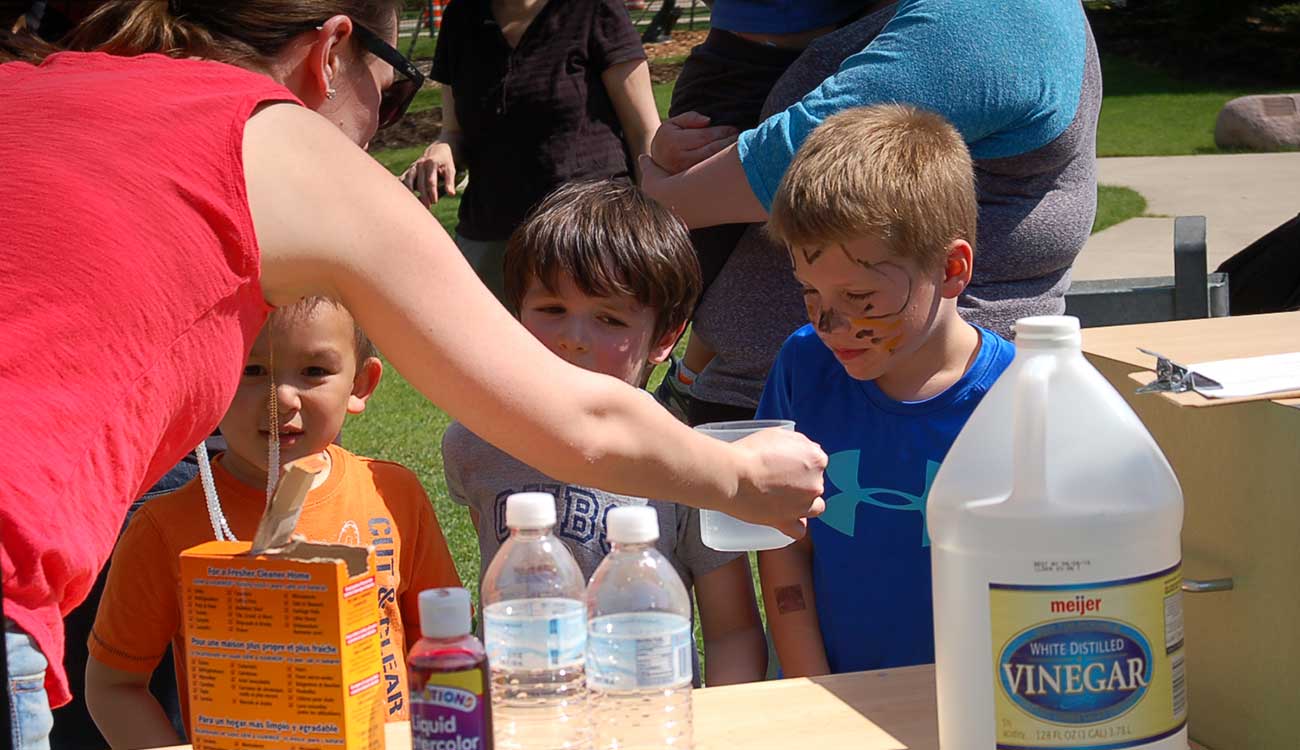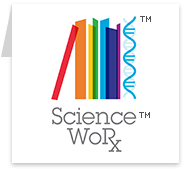INSPIRING CHILDREN’S CURIOSITY AND IMAGINATION.
The importance of quality early childhood education in children's learning and development is clear. By age three, the brain has developed to approximately 80 percent of its adult size and has up to twice as many synapses—or connections—as it will have in adulthood. High-quality science learning opportunities in the early years foster children's curiosity and enjoyment in exploring the world around them.
Kohl Children's Museum understands that young children are intrinsically curious and innately imaginative. The Museum provides hands-on learning opportunities through research-based programs, such as its Science Sleuths program, to inspire that curiosity and imagination.
Science Sleuths is an innovative program designed to make science learning fun and accessible to young children. As part of its Science WoRx™ program, Astellas USA Foundation has funded Science Sleuths since 2015 and is pleased to expand its support of the program in 2018 to include high school interns from ITW David Speer Academy. Speer Academy interns will have the opportunity to participate in a year-long internship designed to advance their education in STEM-related areas.
Thanks to the support of Astellas USA Foundation, Science Sleuths is reaching at least 519 people each year, helping lead to a population of critical thinkers, negotiators and problem solvers.
Science Sleuths is a program that meets every other Wednesday. Visitors are led through interactive experiments throughout the Museum using specialized carts. The carts were designed to engage groups of children in a wide variety of activities, with an overhead mirror, a sink, a whiteboard for making predictions and surfaces at multiple heights so guests of all ages are able to participate. Some experiments are developed by students from ITW David Speer Academy who will observe, assist with, and eventually lead programming for the young children, providing the interns with the opportunity to learn by teaching.
Throughout the year, children at Kohl Children's Museum become young scientists and learn to make predictions, test their ideas and observe results. All experiments are designed using learning standards for children ages birth to eight and feature critical adult connection components to engage parents, caregivers and teachers. Some of the experiments include:
- Heart Explorations: Children learn about the heart, their pulse and how to keep their hearts healthy.
- Make It Melt: Children discover how temperature and other materials affect ice. They investigate how to make tunnels and crevices by exploring various methods of melting ice.
- Breath of Fresh Air: Children investigate how humans breathe by creating a model lung and listening to their own lungs work.
Together, Kohl Children's Museum and Astellas USA Foundation are helping children develop skills in observation, reasoning, logic, math, problem solving and critical thinking, which are essential to empowering the next generation to participate in an increasingly scientific and technological world.


